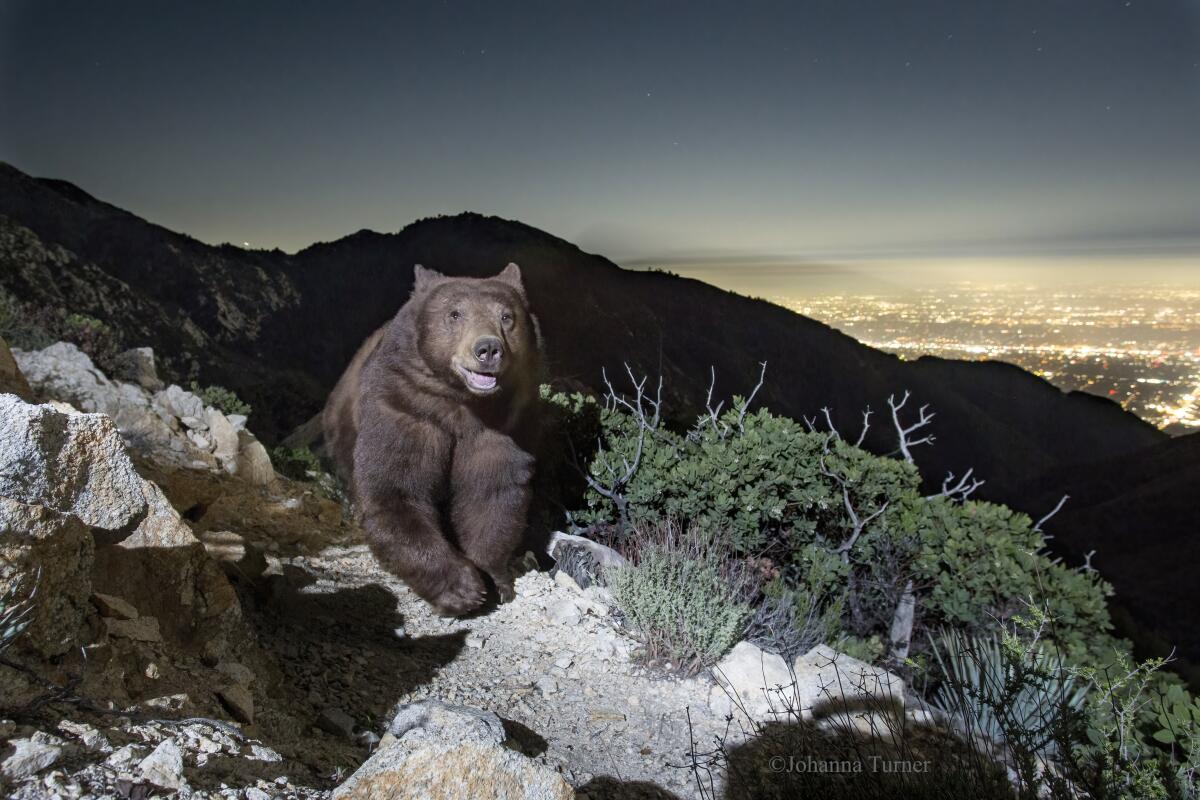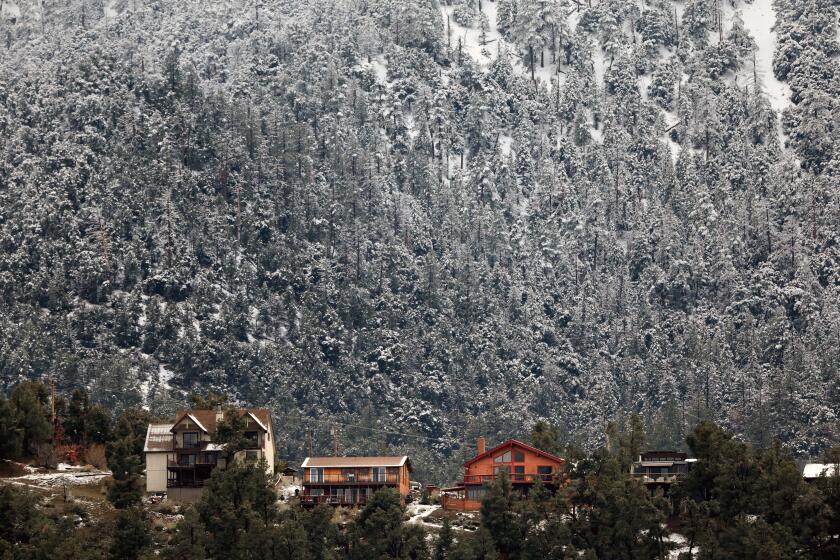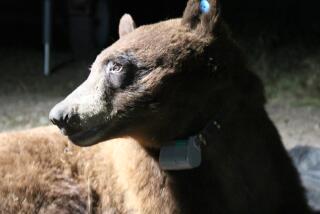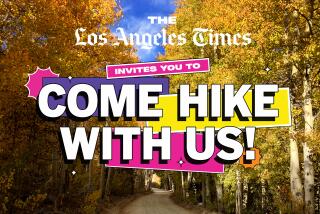Grin and bear it: Photographer snaps rare image of black bear appearing to smile above Pasadena

In a city where paparazzi snapshots of elusive celebrities draw the attention of millions of adoring fans, an image of a seemingly smiling Los Angeles heavyweight, overlooking the twinkling lights of Pasadena, is about to go viral.
Under stars in the mountains overlooking the San Gabriel Valley, wildlife photographer Johanna Turner captured an indelible image of a real-life bear appearing to pose for a photo.
The photo, taken with a trail cam in late April, could have only been captured remotely, Turner wrote on Facebook: “No way anyone’s getting that close in person.”
The bear appears to be climbing onto a plateau on the San Gabriel Mountains, a smile on its face, with the lights of Hollywood and Los Angeles shining below.
She wrote that she named the file “BrownHappyBear” because of the apparent smile on the black bear’s face.
The photo was taken “within the part of the Angeles National Forest that was recently added to the San Gabriel National Monument status by the Biden administration,” Turner wrote in correspondence with The Times.
“So this bear now has some added funding to protect his habitat which is great,” she wrote, “for an area with a lot of recreational human use.”
At Pine Mountain Club in Kern County, home and vehicle break-ins by bears are a recurring source of stress, as well as community division.
Turner shared tips from the California Department of Fish and Wildlife on how to interact with bears in nature.
“Dogs can startle or scare bears and provoke defensive behaviors,” according to the state agency website, so dogs should be kept on a leash on trails.
As Southern California’s weather warms, bears often venture into developed areas in search of food and water. Black bears, like the one captured in the photo, tend to be less dangerous to humans than the grizzly depicted on the state flag.
If encountering a black bear in the wild, hikers should slowly back away and avoid eye contact while making themselves look bigger and making noise, according to the California Department of Fish and Wildlife.
Generally, though, it is humans who have encroached on the black bears’ habitats and put them in harm’s way.
“As our human population expands into wildlife habitat, human-wildlife interactions have increased,” the state agency writes. “Some people do not realize the harm in feeding wild animals or preventing access to attractants.”
More to Read
Sign up for Essential California
The most important California stories and recommendations in your inbox every morning.
You may occasionally receive promotional content from the Los Angeles Times.












